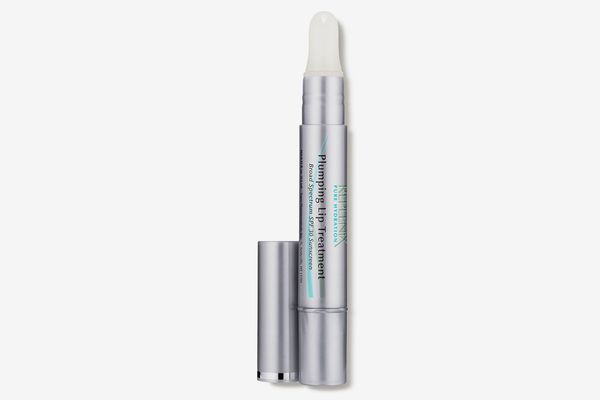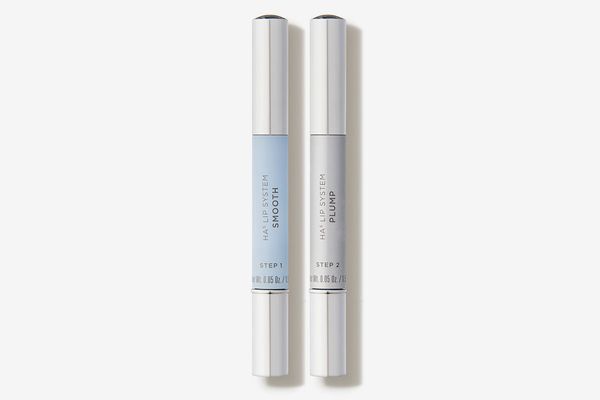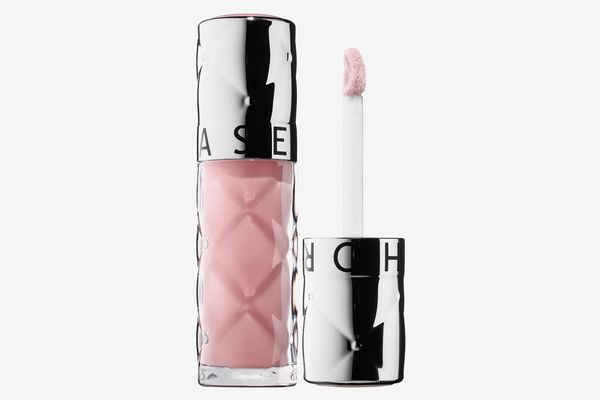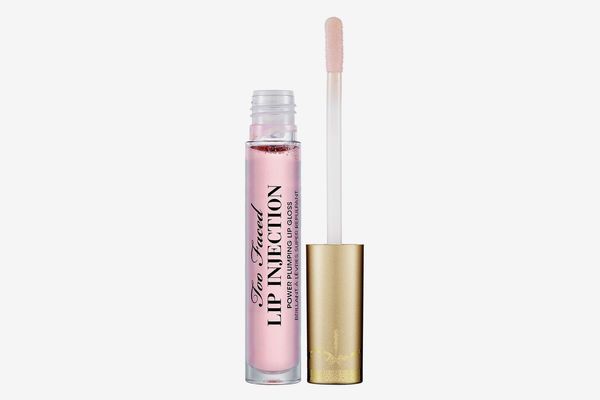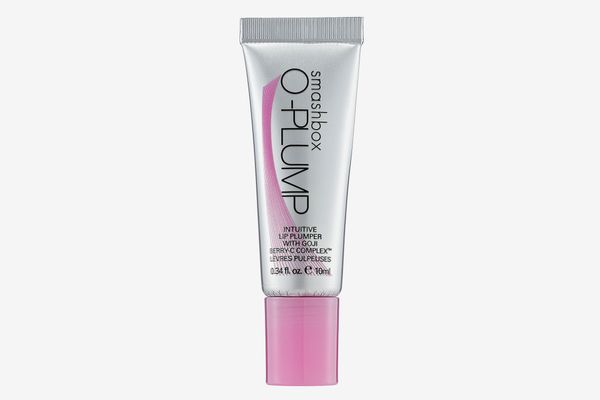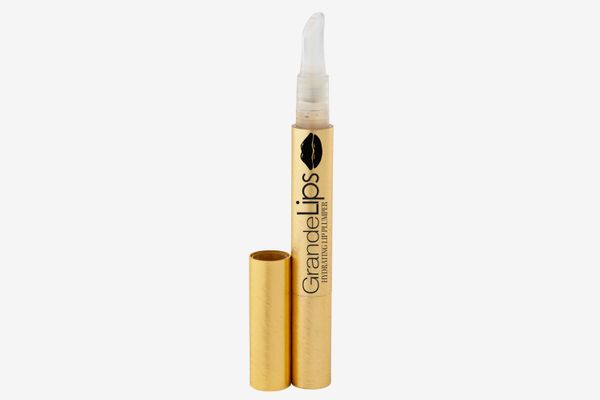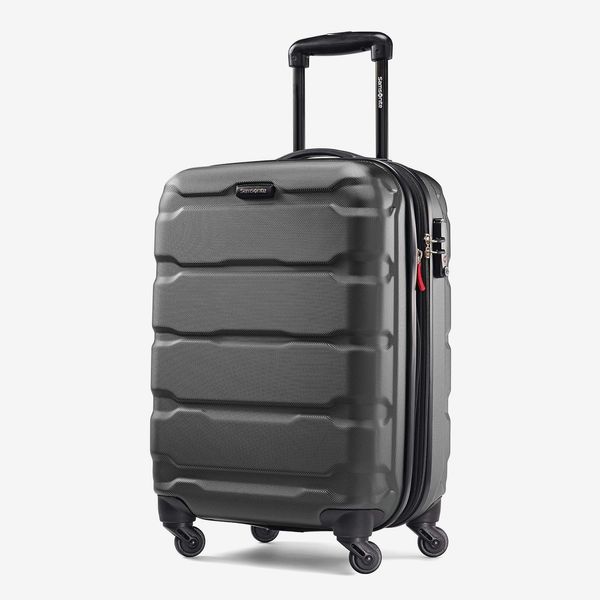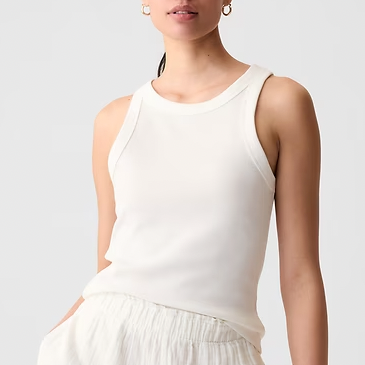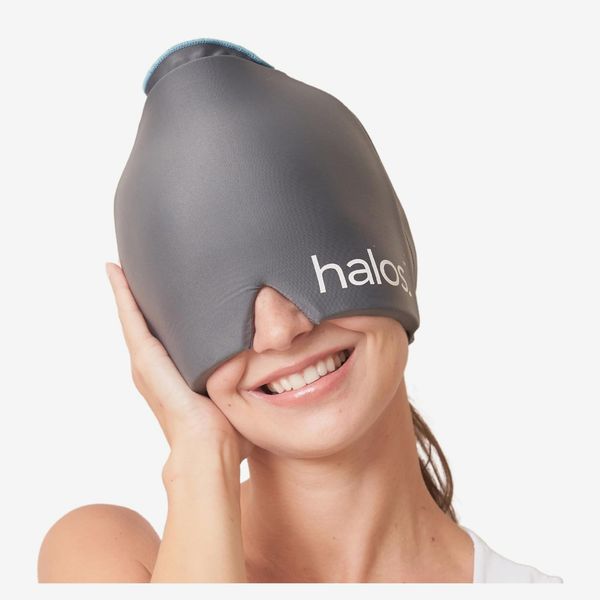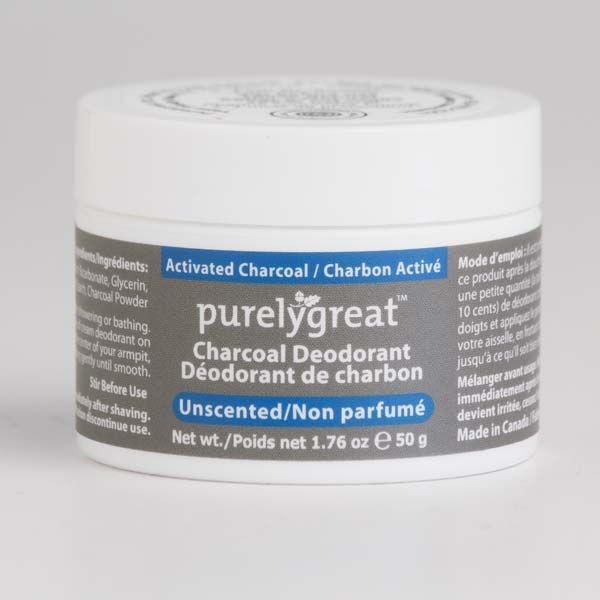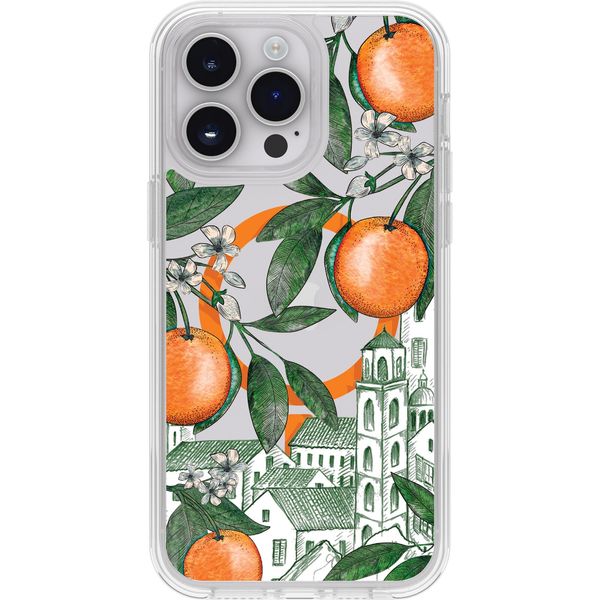
The pursuit of bigger lips is not a new trend, but you can credit the Kardashians for the recent resurgence in lip enhancers. While injectable lip fillers have been a medical option for decades, there’s also emerged a category of topical, noninvasive “lip plumpers” that promise the bee-stung look without needles. And with a “new class of lip plumpers” cropping up based on the power of hyaluronic acid, you might wonder, What actually works and how?
Every dermatologist that I spoke to for this story said that topical lip plumpers can produce a notable increase in lip volume for up to a few hours, but it really depends on what’s in them. Traditionally, lip plumpers have relied on irritants — peppermint oil, wintergreen, capicum (a derivative of chile peppers), and cinnamon — or inflammatory ingredients like bee venom and niacin to swell the lips. Hooman Khorasani, the chief of the division of Dermatologic and Cosmetic Surgery at Mount Sinai’s Icahn School of Medicine, explains that these aren’t stimulating an allergic reaction (though that is a risk). Instead, they’re causing a mild irritation that increases blood flow, inducing temporary tingling and swelling as a result. And all of the experts agreed that irritants, though potentially harmful for skin, do actually work.
That conventional approach is very different to that of plumpers that contain hyaluronic acid, which claim to boost lip size through absorbing hydrating molecules through the skin. Joshua Zeichner, the director of cosmetic and clinical research in dermatology at Mount Sinai Hospital, explains that hyaluronic-acid lip plumpers “pull hydration to the surface of the skin. Just as it is used in skin-care products, hyaluronic acid can enhance hydration and plumpness of lips.” He says that they’re a better alternative to irritants because “they do offer moisturizing benefits which make the lips feel better.”
If your main goal is bigger lips, though, they’re probably not your best option. Zeichner admits that they may not be as dramatically plumping, and Khorasani says the science behind them is not super convincing either. “It’s very hard for hyaluronic acid to penetrate the corneal layer, so it’s questionable how much can be absorbed.” Ditto for lip plumpers that advertise “collagen-producing peptides,” which don’t penetrate the skin very well either.
And while skin irritation might be a bigger issue if you’re especially reactive to irritants — allergic reactions and prolonged irritation or dryness are potential problems — there are definitely fewer risks involved with plumpers than with invasive procedures. “Unlike lip fillers, which can last up to a year, lip-plumping products are relatively inexpensive, relatively painless to put on besides a little stinging, and you don’t have to worry about getting a bruise,” says Khorasani. Here, the experts suggest which lip plumpers are actually worth your while.
If you want something that’s stimulating without a particularly strong stinging effect, dermatologist Howard Sobel of Sobel Skin — a fixture on our annual Best Doctors of New York list — suggests Replenix Lip Plumper, which relies on peppermint oil as an active ingredient. It’s one he carries in his office: “I recommend a product with peppermint usually. This one also contains menthol to hold in the lips’ moisture, and most importantly, contains a sunscreen.”
If you have dry, eczema-prone, or sensitive skin and are concerned about skin irritation, Zeichner suggests sticking to options that contain hyaluronic acid for a subtle boost. Specifically, he recommends the Skinmedica HA5 lip plumper, which he says “contains a maximum of five different molecular weight forms of hyaluronic acid to give hydration and lip-rejuvenation properties.”
This Sephora Collection lip gloss also contains a range of plumpers, from peppermint oil and cinnamon to hydrating hyaluronic acid, and many people consider it a dupe for Dior’s pricier Lip Maximizer Plumping Gloss.
Here’s a best-selling option from Too Faced that contains a powerful irritant called “capsicum frutescens resin,” a species of chile pepper that’s very popular in lip plumpers, so expect some stinging to occur.
This lip plumper — which is a favorite of Amanda Lepore — really piles on the irritants (winterberry, peppermint, ginger, and capsicum extract), so you might notice a more pronounced tingling effect.
And a best-selling plumper from Grande Cosmetics that uses the inflammatory ingredient niacin — plus hyaluronic acid — to boost lip size.
The Strategist is designed to surface the most useful, expert recommendations for things to buy across the vast e-commerce landscape. Some of our latest conquests include the best women’s jeans, rolling luggage, pillows for side sleepers, ultra-flattering pants, and bath towels. We update links when possible, but note that deals can expire and all prices are subject to change.
Every editorial product is independently selected. If you buy something through our links, New York may earn an affiliate commission.
